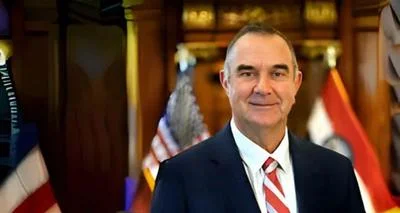Mary Theresa McLean | Provided
Mary Theresa McLean | Provided
Missouri families have endured the pain of unaffordable prescription drug prices for too long. Despite efforts from local pharmacies, insurers, and Pharmacy Benefit Managers (PBMs) that negotiate lower prices on behalf of patients, Missourians still pay over three times more for brand-name medications than people in other developed nations. The power to set those prices lies with pharmaceutical manufacturers, not insurers, pharmacies, or PBMs, no matter how Big Pharma tries to shift the blame.
President Trump has recognized that the root cause of high drug costs is the original sticker price set by Big Pharma. That’s why he signed the “Delivering Most-Favored-Nation Prescription Drug Pricing to American Patients” executive order last May, a strike at the global price-fixing practices that have left American patients footing the highest bills in the world.
The order ensures that all Americans will not pay more for the same medications than patients in Europe or Canada. It requires drug manufacturers to offer Medicaid, Medicare, and insured patients in the U.S. the same low prices they give to other wealthy nations. It also directs federal agencies to set Most Favored Nation (MFN) price benchmarks that drug companies must honor, establish direct-to-consumer pathways so patients can purchase medicines at international benchmark prices, and use trade and legal action against companies that continue to overcharge American families.
President Trump reinforced this message by sending personal letters to 17 major pharmaceutical CEOs, including Pfizer, Johnson & Johnson, Eli Lilly, and Novartis. In the letters, he demanded that American patients receive the same low prices as citizens abroad, that excess overseas profits be returned to U.S. taxpayers; and that companies create programs offering international pricing to U.S. consumers.
Trump gave them until September 29 to comply or face “every tool in our arsenal” being deployed to protect American families.
Nowhere is this fight more urgent than in Missouri. Nearly one in three Missourians reports skipping medications because of cost—well above the national average. Chronic conditions like diabetes, hypertension, and heart disease are common here, and these diseases require consistent, affordable access to prescription drugs like insulin, statins, and beta-blockers. Yet pharmaceutical manufacturers continue to drive up the prices of these lifesaving medications, even though they’re made in the same factories and formulas as the medications used abroad.
Minority and low-income Missourians are hit hardest. Black and Hispanic families in Missouri suffer higher rates of diabetes and cardiovascular disease, yet often live in “pharmacy deserts”—areas with limited pharmacy access and few affordable options. Here, PBMs and large chain pharmacies serve as a lifeline by negotiating bulk discounts that lower out-of-pocket costs for families, providing mail-order pharmacy programs that deliver medications to remote or underserved neighborhoods, ensuring access for communities without local pharmacy options, and capping copays at $5 for generics and $25 for preferred brands, helping families stay on their prescribed treatments.
Without PBMs’ negotiating power, the average cost of essential medications could rise by 40–50%, burdening families already strained by inflation and high medical bills.
While Big Pharma pours millions into lobbying campaigns to smear PBMs and protect its monopoly pricing power, Trump’s order shifts the spotlight back on the companies that set and profit from inflated prices. From 2016 to 2025, PBMs saved consumers and payers an estimated $654 billion, and are projected to save another $1 trillion over the next decade. Those savings disproportionately benefit working-class and minority families who rely on Medicaid and Medicare.
Big Pharma charges triple what other nations pay, all while pointing fingers at the very negotiators who make medications affordable. President Trump’s Most Favored Nation order is the first step toward demanding fairness. If drug companies can sell a lifesaving medicine in Germany or Japan for a third of the cost, they must do the same for Missouri families.
By calling out Big Pharma’s greed and empowering PBMs and pharmacies that deliver savings, President Trump is doing what Washington politicians wouldn’t—putting patients before profits and ensuring that no Missourian has to choose between his or her health and rent again.
Mary Theresa McLean is the former Chair of the St. Louis City Republican Central Committee, where she led efforts to strengthen grassroots engagement and grow the Republican Party’s presence in the city.






 Alerts Sign-up
Alerts Sign-up